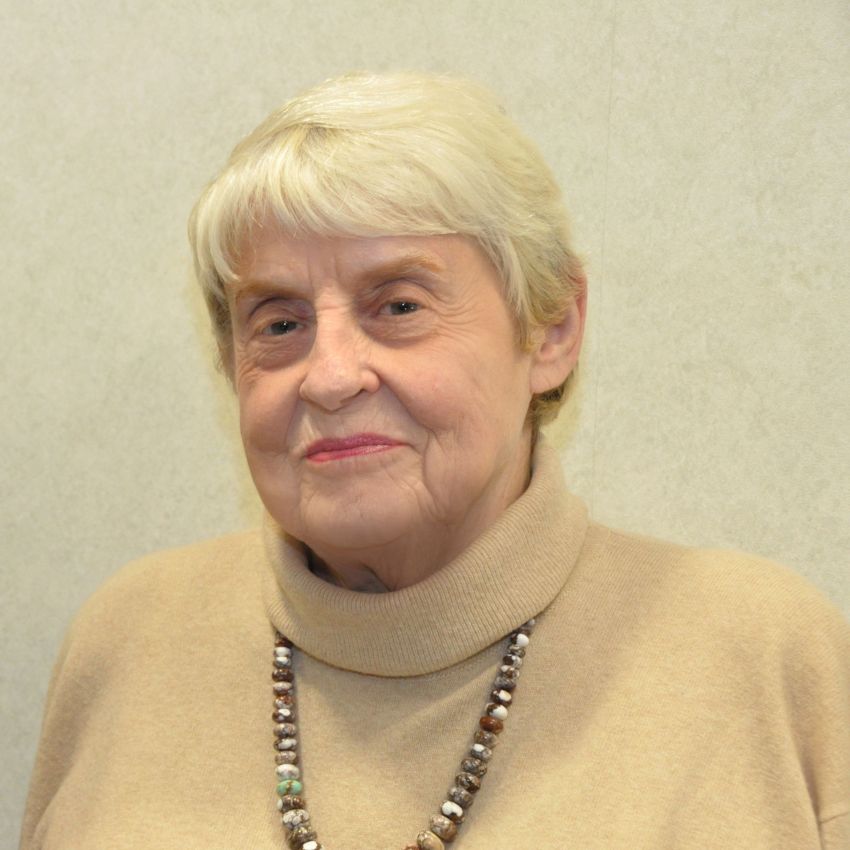
Eva Hanks, a pioneer in legal education and founding member of the Cardozo Law School faculty, died on Wednesday June 12th at the age of 95. Among other firsts, she was a founder in the field of environmental law and Cardozo’s first woman associate dean. During her 38-year tenure at Cardozo she taught Property, Torts and Elements of Law to generations of Cardozo students, before retiring in 2014.
"Eva Hanks led the school at a key time in its development, when women in the legal field were few and women law school professors extremely rare,” said Dean Melanie Leslie. “She helped establish Cardozo as an important and influential law school from its inception. We are all in her debt."
Professor Hanks started her academic career as an Associate in Law at Columbia Law School in 1960. Two years later she became the first woman law professor at Rutgers Law School. At the time, fewer than 20 women held tenure-track positions at an American law school. She played a role in bringing the second woman professor to Rutgers—Supreme Court Justice Ruth Bader Ginsberg, who has written that “Eva Hanks paved the way. The excellence of her teaching eased my acceptance by my colleagues.”
Hanks also taught at Princeton, Indiana University, and NYU before joining Cardozo’s founding faculty in 1976. Because of her national academic reputation, her very presence helped legitimize the fledgling institution. As perennial chair of the Appointments Committee and Associate Dean for Academic Affairs from 1977-1981, no one was more important in recruiting the early faculty and shaping many of the law school’s enduring policies and commitments. “I suppose Cardozo would have survived without Eva –but it would not have flourished,” said Professor Michael Herz. “It would not have had the integrity, ambition, and high standards that define it to this day.”
The field of environmental law is generally dated to 1970, and Eva Hanks made great contributions to it from the start. She wrote important articles on water law and on the brand-new National Environmental Policy Act (NEPA). Along with her husband John Hanks, who also taught at Cardozo, and Dan Tarlock, she wrote the first environmental law casebook for classroom use, the influential, field-defining Environmental Law and Policy.
Hanks would go on to produce a second casebook, one familiar to every Cardozo student who started law school in the last 30 years. In 1994, with colleagues Michael Herz and Steven Nemerson, she published The book, which came out in a second edition in 2010, is a unique volume that simultaneously introduces students to basic methods of legal reasoning and argument, profound jurisprudential questions, and the tools for success in other courses.
Perhaps most importantly, Professor Hanks was an unforgettable classroom teacher. She could be intimidating; her presence filled the room, and she was demanding and did not suffer fools gladly. But she cared deeply about her students and was dedicated to their success, and they realized it. In later years, she made it a practice to hold office hours not in her office but in the student lounge, where one could regularly find her surrounded by engaged, admiring, and lucky students.
"In one's life as a student, we each dream to have a teacher that provides both wisdom and knowledge that stays with you for decades. Professor Hanks' lectures, classroom banter, and hallway smiles and kindness were the greatest gift of my Cardozo education," said Ken Weine '95. "She taught with a passion and fierceness that will inspire generations of teachers and students."
Eva Hanks grew up in Berlin, Germany. The daughter of Jewish and Christian parents, she survived the Nazi years; but her father did not. After World War II she studied at the Freie Universitat where she received her law degree in 1951. After moving to the United States, Hanks earned her J.D. at UCLA Law School, and went on to earn an LL.M and J.S.D. at Columbia Law School.
